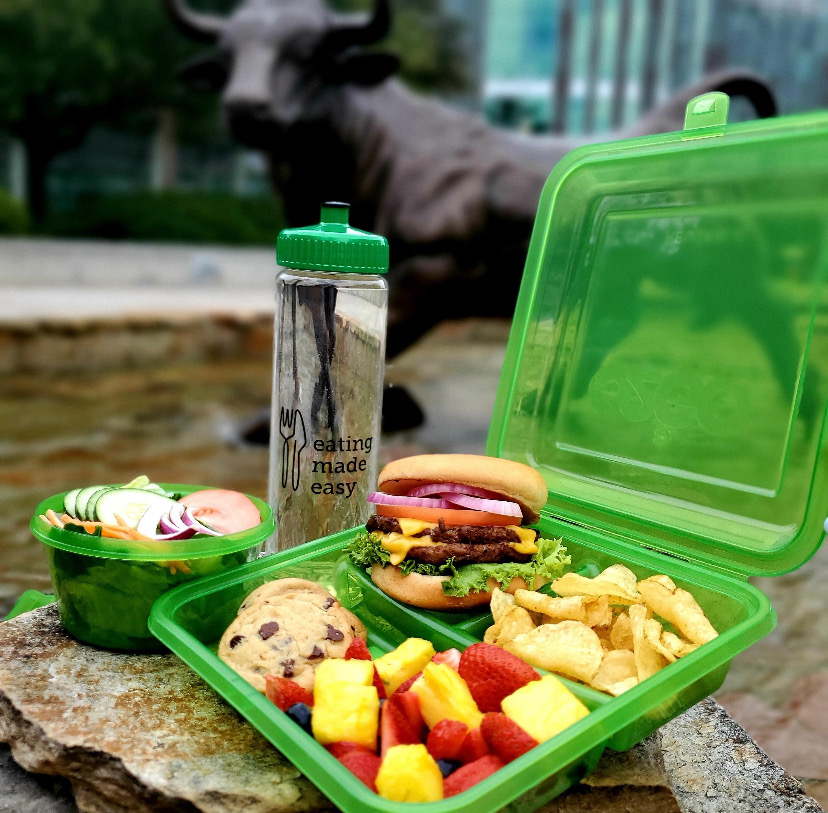USF Dining plans to expand sustainability program

USF Dining’s sustainability initiative, OZZI, has made significant progress since its implementation in summer 2021, according to USF Dining Director Jessica Cicalese.
Because of its widespread success at the Hub and Juniper at the Tampa campus as well as the Nest at the St. Pete, USF Dining plans to launch a reusable beverage container program this summer, according to Cicalese.
Cicalese said USF Dining is also currently working to increase food security for underprivileged students through a collaboration with USF’s Feed-A-Bull food pantry and Student Health Services (SHS).
“Something that we’re very passionate about is food donations. So we are continuing to work with the on-campus food pantry, but also with SHS and Student Government on ways that we can give back to students in need,” she said.
“Whether that be through food donations or dining dollar donations, we just want to work towards a more food secure campus.”
[image_carousel source=”media: 78697,78698,78699″ limit=”20″ slides_style=”default” controls_style=”dark” crop=”4:3″ columns=”1″ adaptive=”yes” spacing=”yes” align=”none” max_width=”none” captions=”yes” arrows=”yes” dots=”yes” link=”none” target=”blank” autoplay=”5″ speed=”medium” image_size=”large” outline=”yes” random=”no”]4,704 boxes were collected at the Tampa campus and 1,600 were returned at the St. Pete campus in January, according to Cicalese. Because of OZZI’s widespread popularity, she said 25 million single-use containers were diverted from landfills to date.
OZZI has been adopted by many other institutions as well, such as the University of Notre Dame, Florida State University and the University of California. All but five U.S. states have integrated OZZI within their universities because of increased “demand for to-go,” according to Cicalese.
Prior to COVID-19, Cicalese said USF Dining had a less formal to-go box program. The lack of durability of the former boxes and exclusion of barcodes limited the reliability of the system. Barcodes serve to keep an inventory of how many boxes are out and how many have been returned, according to Cicalese.
“During COVID-19, we stopped our reusable to-go box program because of germs and keeping things safe. So that’s when we saw an increase in the packaging costs, and the amount of trash being created,” she said.
The pandemic-era pollution spike hastened the need for a more sustainable, eco-friendly approach to student convenience, according to Cicalese. She said the once-frequent images of trash bins overflowing with cups, boxes and bags on campus have been eradicated with the onset of OZZI.
Cicalese said OZZI has garnered both monetary and environmental benefits, as eliminating the need for single-use packaging has reduced manufacturing costs and decreased carbon emissions by 60%.
“It’s definitely helped us save on the amount of packaging that we need to purchase. They’re using their own silverware when they dine, also saving on water because less plates and dining hall utensils,” Cicalese said.
“There’s a system in place and people follow it. It’s a good platform where students want to give back to the planet and the environment.”
USF Dining is an extension of Aramark, a global food provider whose mission is to reduce associated greenhouse gas emissions by 25% by 2030, according to Cicalese. She said OZZI is contributing to this effort by scaling back on plastic consumption.
In addition to minimizing the damaging effects of greenhouse gasses, she said Aramark aims to achieve a menu with 44% plant-based offerings by 2025.
Dining also plans to source more responsibly this fall, working with local vendors such as Livy O’s to support small businesses and, in turn, reduce carbon footprint and emissions from the environment, according to Cicalese.
“It’s become more accessible now,” she said. “Students are looking for more organic, more variety. So why not do that?”







